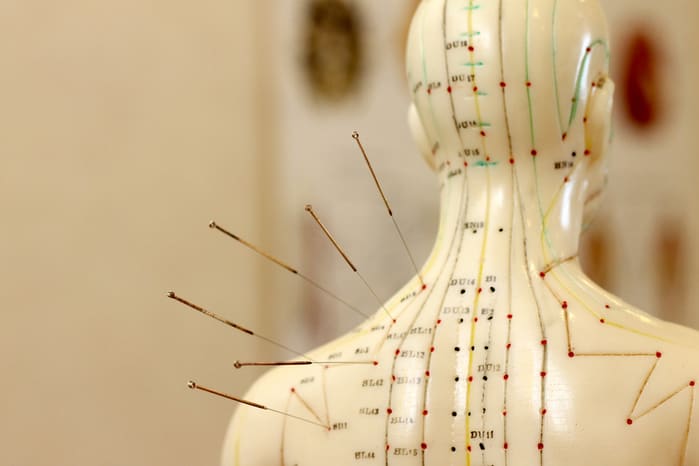Acupuncture: Fact or Fiction?

For centuries, people have used acupuncture to treat everything from headaches and allergies to extreme fatigue and depression. And even though it’s been in existence for so long, popular opinion on it has remained divided. Some call it an elaborate scam, others call it an absolute lifesaver. So which side is right?
What is acupuncture?
Before we weigh in on either side of the acupuncture argument, let’s back up. Acupuncture is a holistic method of healing that involves stimulating specific pain points in the body with thin, strategically placed needles. These needles, although painless, can look alarming. A trained acupuncture specialist will insert the needles and leave them in for anywhere from 15 minutes to an hour. And while it can cause a little bit of bleeding or bruising (you are, after all, inserting needles into your body), there are no major side effects of properly performed acupuncture.
What are the benefits of acupuncture?
People swear by acupuncture. Its benefits range far and wide. Here’s a peek at some of the top reasons people turn to acupuncture in their time of need:
Back, neck and shoulder pain relief
- If you have a misaligned spine, a pinched nerve or a number of other upper body afflictions, acupuncture can help relieve the pain by targeting your body’s acupoints—areas that release feel-good energy when pressed.
Treatment for depression
- When you’re depressed, your body lacks the natural endorphins it needs to thrive. Acupuncture can help. By using the thin needles to release the blocked energy into your body, acupuncture can help ease the effects of depression.
Supplementary cancer treatment
- Chemotherapy, radiation and other traditional methods of treating cancer can cause lots of unpleasant side effects. Acupuncture can help alleviate these pains—in particular, the anxiety and nausea cancer patients tend to experience.
What are the risks of acupuncture?
As long as you visit a licensed acupuncturist, the risks of acupuncture are actually very low. If not properly performed, acupuncture can lead to general soreness, infection (if the needles aren’t clean) or organ injury (if the acupuncturist inserts the needles too far into the skin).
Acupuncture isn’t for everyone, though. If you’re pregnant, have a pacemaker or suffer from a bleeding disorder, talk to your doctor before trying acupuncture for the first time.
So, what’s the verdict: real or fake?
Acupuncture definitely has its skeptics. Those who claim acupuncture isn’t real often refer to it as triggering a “placebo effect,” which causes people to feel a benefit that doesn’t affect their body on a physical level. In other words, it’s all mental.
Certain studies have actually tested this placebo effect notion by pitting two groups against each another: one received acupuncture in pinpointed areas, while the other had needles inserted at random. Neither the variable nor the control group’s reactions differed notably.
At the end of the day, acupuncture’s fans and naysayers remain divided, neither with the clinical evidence they need to fully support their claims. Bottom line: If it works for you, go for it.
Sources:
Lipsey, Sid. (N.D.) Why Does Acupuncture Work?
www.webmd.com/pain-management/features/acupuncture-pain-killer
Gorski, David. (2012, September 16.) Can We Finally Just Say That Acupuncture is Nothing More Than an Elaborate Placebo? www.sciencebasedmedicine.org/can-we-finally-just-say-that-acupuncture-is-nothing- more-than-an-elaborate-placebo/
Goetz, Teri. (2015, September 28.) Acupuncture for Stress and Depression? Yes, Please!
www.psychologytoday.com/blog/renaissance-woman/201509/acupuncture-stress-and- depression-yes-please
